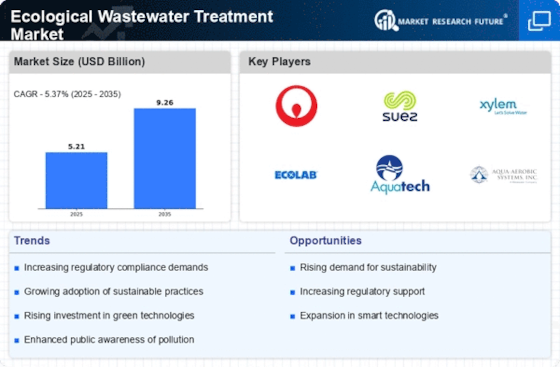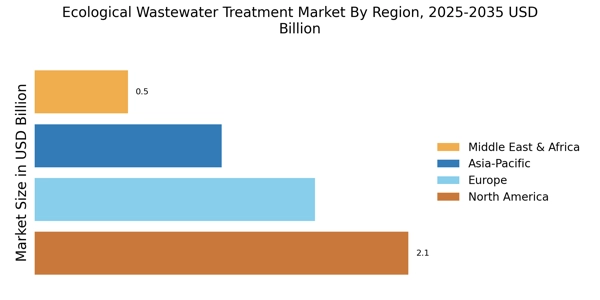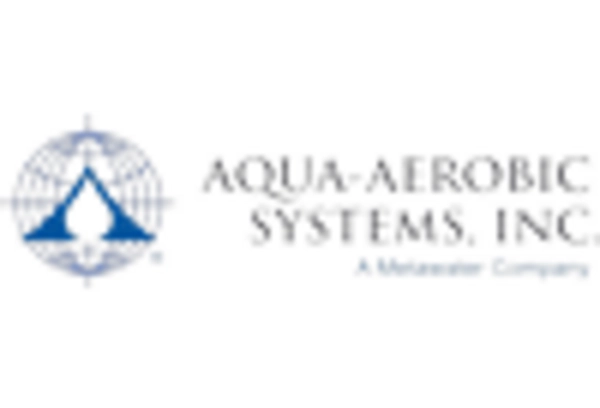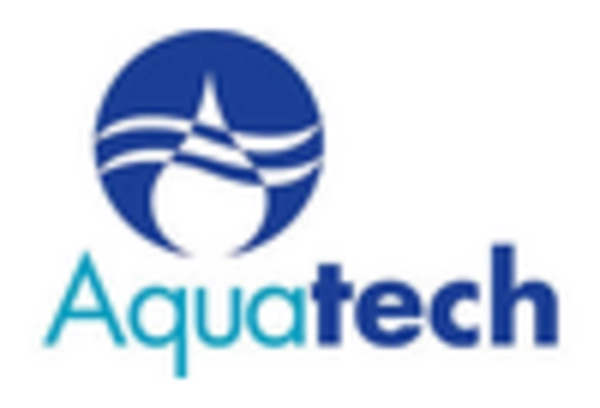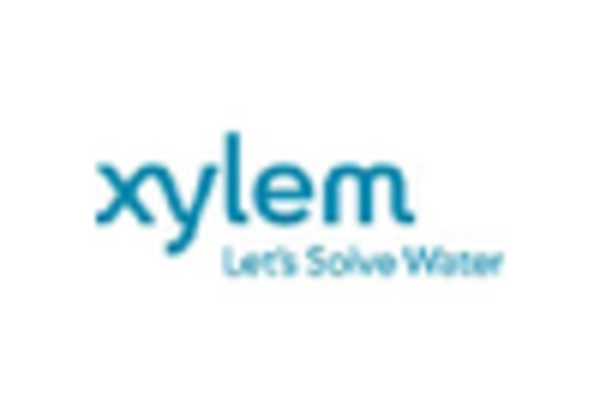Technological Advancements
Technological advancements play a crucial role in shaping the Ecological Wastewater Treatment Market. Innovations such as membrane bioreactors, constructed wetlands, and advanced oxidation processes are enhancing the efficiency and effectiveness of wastewater treatment. These technologies not only improve the quality of treated water but also reduce operational costs. For instance, the implementation of membrane bioreactors has been shown to increase treatment capacity by up to 50%, making them an attractive option for municipalities and industries alike. Furthermore, the integration of smart technologies, such as IoT and AI, is streamlining monitoring and management processes, thereby optimizing resource use. As these technologies continue to evolve, they are likely to drive further investment and interest in ecological wastewater treatment solutions.
Rising Environmental Awareness
The increasing awareness regarding environmental issues is a pivotal driver for the Ecological Wastewater Treatment Market. As communities and industries recognize the detrimental effects of traditional wastewater treatment methods, there is a growing demand for sustainable alternatives. This shift is reflected in various studies indicating that approximately 70% of consumers prefer eco-friendly products and services. Consequently, businesses are compelled to adopt ecological wastewater treatment solutions to align with consumer preferences and regulatory expectations. The heightened focus on sustainability is not merely a trend; it is becoming a fundamental aspect of corporate responsibility. This evolving landscape suggests that companies investing in ecological wastewater treatment technologies may gain a competitive edge, as they demonstrate commitment to environmental stewardship and social responsibility.
Urbanization and Population Growth
Urbanization and population growth are driving significant changes in the Ecological Wastewater Treatment Market. As urban areas expand and populations increase, the demand for effective wastewater management solutions intensifies. It is estimated that by 2030, nearly 60% of the world's population will reside in urban areas, leading to increased pressure on existing wastewater treatment infrastructure. This scenario necessitates the adoption of more sustainable and efficient treatment methods, such as ecological wastewater treatment. Moreover, urban areas are often more susceptible to water scarcity issues, making the need for effective wastewater recycling and reuse even more critical. Consequently, the ecological wastewater treatment market is poised for growth as cities seek to address these challenges.
Regulatory Frameworks and Incentives
The establishment of robust regulatory frameworks and incentives is a significant driver for the Ecological Wastewater Treatment Market. Governments worldwide are increasingly implementing stringent regulations aimed at reducing pollution and promoting sustainable practices. For example, many regions have set ambitious targets for reducing wastewater discharge and improving water quality. These regulations often come with financial incentives for businesses that adopt ecological treatment methods, such as tax breaks or grants. As a result, companies are more inclined to invest in ecological wastewater treatment technologies to comply with these regulations and benefit from available incentives. This regulatory support not only fosters innovation but also creates a more favorable market environment for ecological solutions.
Investment in Sustainable Infrastructure
Investment in sustainable infrastructure is emerging as a key driver for the Ecological Wastewater Treatment Market. Governments and private entities are increasingly recognizing the importance of sustainable practices in infrastructure development. This trend is evident in various initiatives aimed at upgrading existing wastewater treatment facilities to incorporate ecological methods. For instance, many municipalities are allocating funds to retrofit traditional plants with green technologies, thereby enhancing their environmental performance. Additionally, international organizations are providing financial support for projects that focus on sustainable water management. This influx of investment not only facilitates the adoption of ecological wastewater treatment solutions but also encourages innovation and research in the field, ultimately contributing to a more sustainable future.


